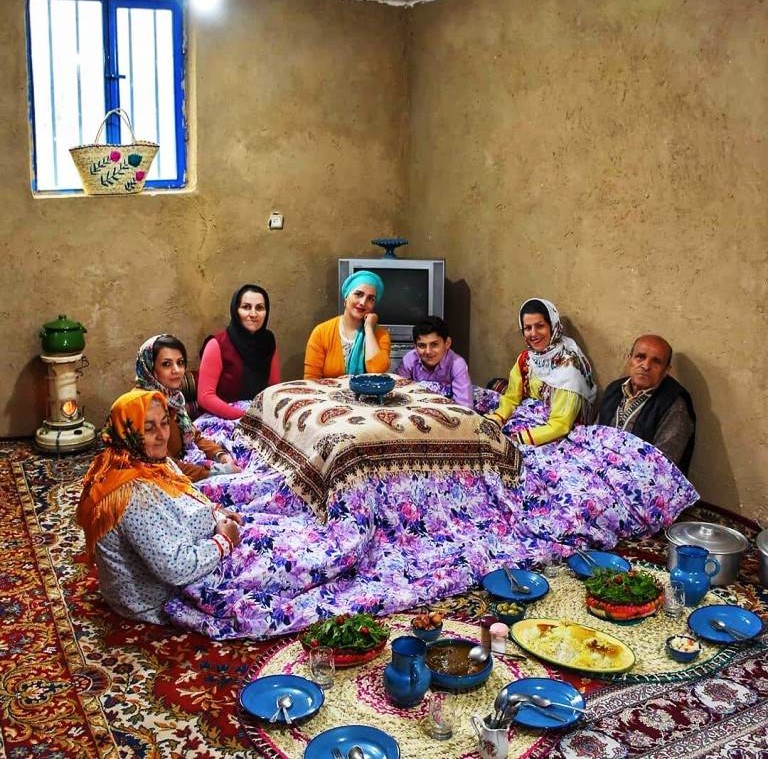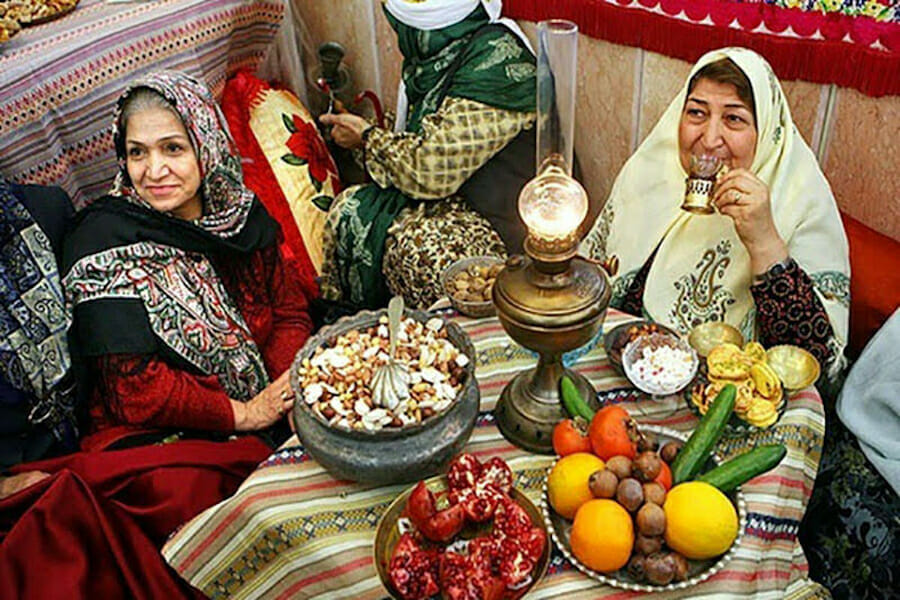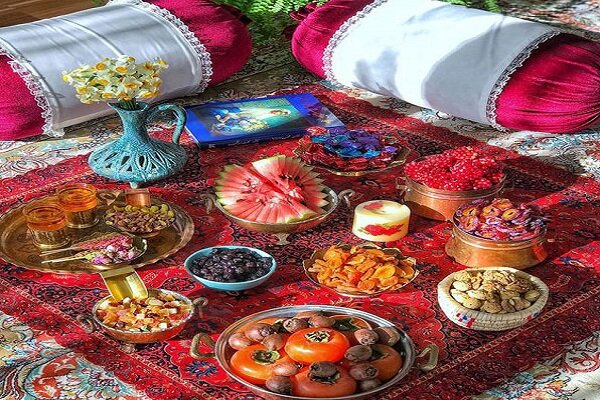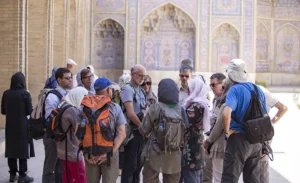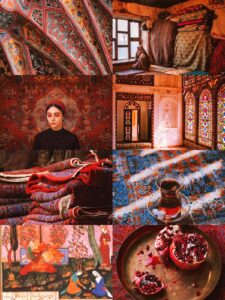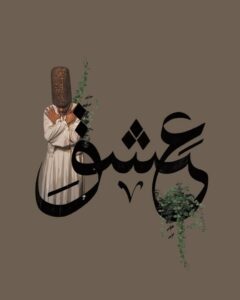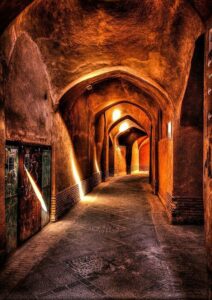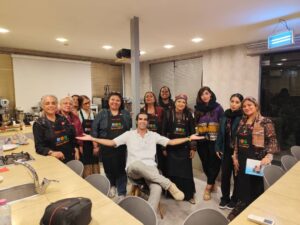Winter is coming. The days grow shorter, the nights colder. But in Iran, the longest night of the year is not something to fear—it’s something to celebrate.
Welcome to Yalda Night, or Shab-e Yalda—an ancient Persian tradition that fills the darkest night with the brightest memories.
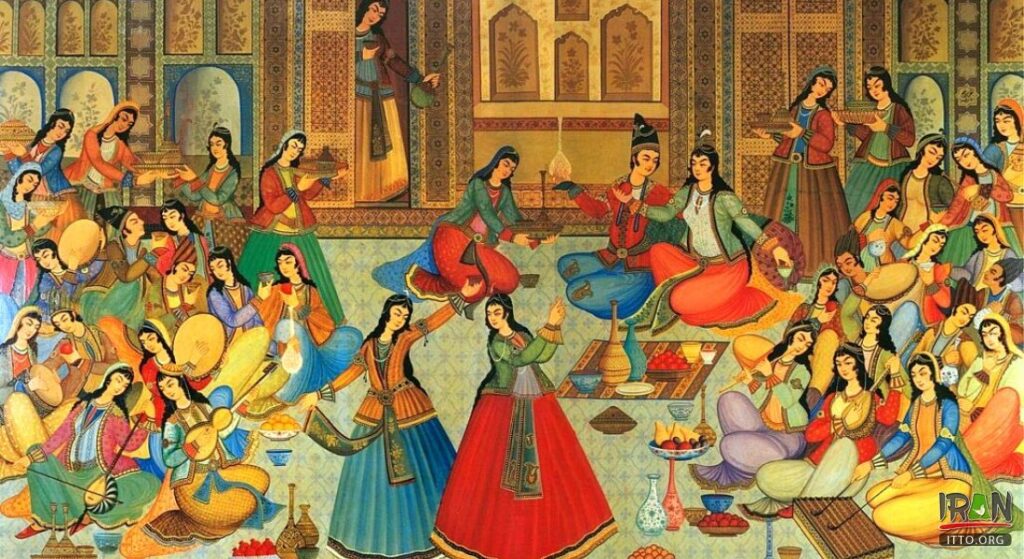
On the evening of December 20 or 21, Iranian families gather in warm homes, filled with candles, poetry, laughter, and fruit. Grandmothers wear colorful scarves. Children giggle under blankets. The table is full of red and gold: pomegranates, watermelons, dried nuts, sweets, and tea.
Everyone stays up past midnight—not because they have to, but because they want to.
They read lines of Hafez, the great Persian poet. Some families open his book and ask for a fāl—a poem of guidance, a poetic fortune. Others tell old family stories, play music, or simply sit and talk about life.
The cold wind may blow outside, but inside, hearts are warm. Yalda is a celebration of light over darkness, love over loneliness, tradition over time.
And the beauty?
You don’t need to believe in anything. You just need to be there.
To eat. To listen. To look into the eyes of someone who loves you, or who just met you but offers you tea like family.
For Iranian people, Yalda is not just a date on the calendar. It’s a feeling—a moment that connects generations. A soft, glowing pause between seasons. A night to remember what matters most: togetherness.
If you are lucky enough to be in Iran in December, accept any invitation for Yalda.
You will not just witness a tradition—you’ll become part of it.
And long after the night ends, the taste of pomegranate, the sound of poetry, and the feeling of being truly welcomed will stay with you.
